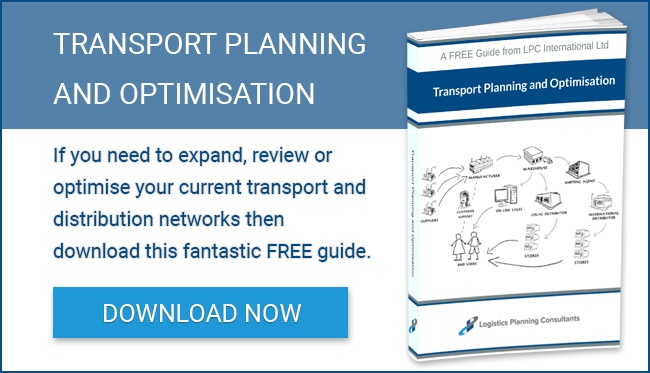
The transport system is the pivotal element in a logistics chain and can consume perhaps one third of the total cost of logistics. The transport system has an overarching impact on the overall performance of production procedures right through from manufacturing to distribution. Given its critical role, transport planning is essential and good planning reaps rewards in efficiencies that add to the bottom line.
Probably every organisation already has a transport plan of some description. Like all plans, a robust review by relevant experts should be applied at intervals to refresh it in light of current operating conditions and advances in relevant technology and techniques. Otherwise the plan may be leaking costs unnecessarily and will continue to do just that until it is made good.
What Is The Scope Of Transport Planning?
The two fundamental requirements for good planning are granular levels of detail and appropriate data. Detail such as the mix of vehicle sizes and types, vehicle and personnel utilisation are common examples but also demand variables surrounding product flow – aspects such as special handling requirements, frequency, seasonal factors, volume, special contractual demands, routing peculiarities, delivery windows and restrictions and so on. The devil really is in the detail and the foundation for good planning is methodical identification and capture of metrics such as these as well as KPIs. Where data is missing or may take time to compile, any working assumptions used instead need to be tested to a reasonable degree.
The outputs from a well-executed planning exercise may include specific recommendations to deliver increased productivity, staffing utilisation, efficiency and competitiveness as well as strategic or tactical process changes. The end result is invariably a more streamlined operating model, often with measurable cost/performance enhancements.
How LPC Can Help
Transport planning and strategy is one of our strengths that we are delighted to share with organisations upon request. We believe it is an extremely valuable specialty that covers a very wide field. Our knowledge and expertise has been developed and honed through experience across many industries and real life operations.
While every company is different, with its own unique issues and challenges, our general approach is to adopt a sensible and pragmatic 3-stage action plan initially before branching out into specific areas depending on your priorities and critical needs.
- Review, understand and optimise your current transport plan
- Consider potential changes and improvements to your operation
- Assess the different transport and operational choices and outsourcing, and how you go about it
Some typical specific advisory activities that clients request include:
Software assessment and recommendation – LPC is not a software vendor, which makes us impartial as regards advice in this area. The large selection of routing and scheduling packages in the market is available from vendors that focus on size of company or market sector. Choosing the right product for your business enables you to: Perhaps Ken can comment on ths Para?
- Cut fuel and CO2 emissions
- Improve customer service
- Reduce planning time
- Be more efficient
- Link with tracking
- Review KPIs
Modelling your Transport and Supply Chain Strategy - As your number of warehouses increases so do property, stock, storage and handling costs, but transport costs decrease (assuming the warehouses are properly located and boundaries between them properly defined). Therefore for every business there is a NDC / RDC / Out-base profile sweet spot which presents the lowest distribution cost for a given service level. For a smaller company this might be a single warehouse. Computer modelling can be used to find the optimum logistics network for your company. It can also accurately model the economic impact of opening or closing one or more locations if you are considering expanding or rationalising your warehouse locations. Transport planning does not sit in isolation at this strategic level but forms a critical component of all modelling and wider planning activities.
This article can only provide a high level flavour of some of the benefits that LPC can deliver to your organisation. For more information, please call us for an informal introductory chat.
You may also download our Transport Planning & Optimisation guide for more free information, by clicking here.


